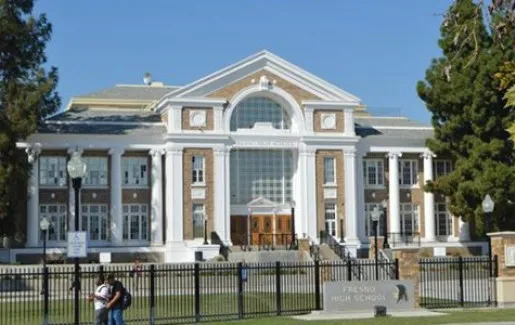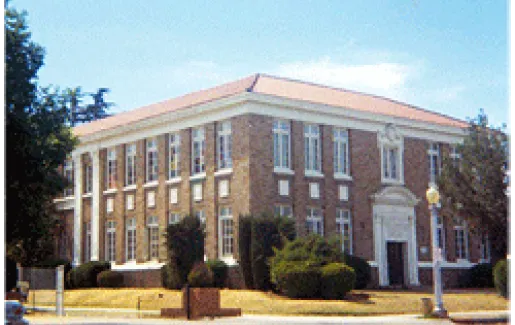Fresno High School
An historic building that was home to Fresno High School was under renovation. Roofers were at work on a section of the roof when an explosion set…
As a result of your personal perseverance, ability to decipher reports and preparation of supporting documentation, you were able to fully and accurately present our claim in the most positive manner. Your attention to detail was key in allowing us to secure an additional $900,000 above what was originally estimated for the claim.
Description
An historic building that was home to Fresno High School was under renovation. Roofers were at work on a section of the roof when an explosion set the roof on fire. Flames moved through the school; students were evacuated and some of the workers on site were injured.
The fire damaged Royce Hall, the original historic schoolhouse. Affected were two classrooms, two offices, a cafeteria and an auditorium for 2,800 students. Water and smoke damage throughout the building led to additional issues after the fire (lead paint contamination and ADA upgrades including an elevator).
Issues
- Could a scope of loss be agreed upon?
- What was covered under business interruption? How would extra expenses be captured? What was considered an extra expense?
- Would ADA upgrades be required as a result of the loss even though the insurance carrier believed Deputy State Architect (DSA) regulations would not?
- Would the school district be able to perform public bidding (as required since the damages exceeded $1 million) within 100 days of the date of loss, in order for repairs to be completed for the following fall semester? Would they be able to expedite repairs to the auditorium, a facility that was needed for school and community functions?
- Since there was a modernization plan prior to the fire, should the ADA upgrades be included as part of the insurance settlement or excluded as the carrier suggested?
Solutions Applied
- Shortly after the fire it was discovered that lead dust was present not only in the auditorium, but throughout all of the finishes in the rooms that were impacted by water damage. This increased the scope of the damages considerably. The Greenspan Co./Adjusters International adjuster, along with engineers, hygienists and cost estimators, prepared a two-phase scope of loss that included the damage from the lead dust and ADA upgrades required by code. The strategy presented provided sufficient time to allow public bidding and repairs to the auditorium to commence shortly after the fire, in an effort to have the balance of the building repairs completed before the start of the next fall semester. The Greenspan Co./Adjusters International needed to make sure that the public bidding process included all known repairs (disputed scope issues such as ADA and elevator upgrades were included and specifically noted) even if the insurer was not in agreement.
- The fire damages and lead contamination resulted in temporary portables having to be rented, increased expenditures for meal distribution due to the inaccessibility of the cafeteria and overtime costs resulting from the need to run additional shifts to remove all lead contamination in the building.
- Since the historic auditorium was also used for the community, there was a tremendous amount of pressure exerted by the City of Fresno to facilitate opening the auditorium as soon as possible. Previously scheduled events had to be scheduled at other facilities and loss of income from these events was properly captured by The Greenspan Co./Adjusters International’s forensic accounting team. To help expedite repairs to the auditorium, The Greenspan Co./Adjusters International secured agreement with the carrier to estimate the damages in two phases. Phase one reflected damages only to the auditorium while Phase two reflected all remaining building damages along with ADA upgrades (inclusive of a new elevator). This allowed auditorium repairs to get started sooner while plans were being finalized for the structural and ADA upgrades and balance of the building repairs.
- The Greenspan Co./Adjusters International successfully argued for inclusion of ADA upgrades (handicap access and installation of a three-story elevator). This resulted in payment of an additional $700,000 to the School District.
- Prior to the fire, there was a modernization plan for Fresno High that that was part of a potential bond funding. The insurance carrier argued that since the modernization plan was prepared prior to the fire and included ADA upgrades and the elevator, that the ADA upgrades and elevator at Royce Hall should not be part of the claim. They also wanted to exclude much of the architectural costs as these too, were included in the modernization plan. The Greenspan Co./Adjusters International successfully argued, after careful analysis of the policy, State Building Codes, DSA Policy #94-22 and current insurance law, for inclusion and ultimate payment of these items as part of the insurance settlement.
Outcome
The Greenspan Co./Adjusters International kept the claim on track, with a multi-stage claims recovery process that separated out the controversial issues and thus allowed for quick settlement of the agreed-upon elements of the claim. The district was able to expedite repairs to the auditorium, award a contract and begin construction for the balance of the repairs while the controversial issues were being researched, argued and ultimately paid.


